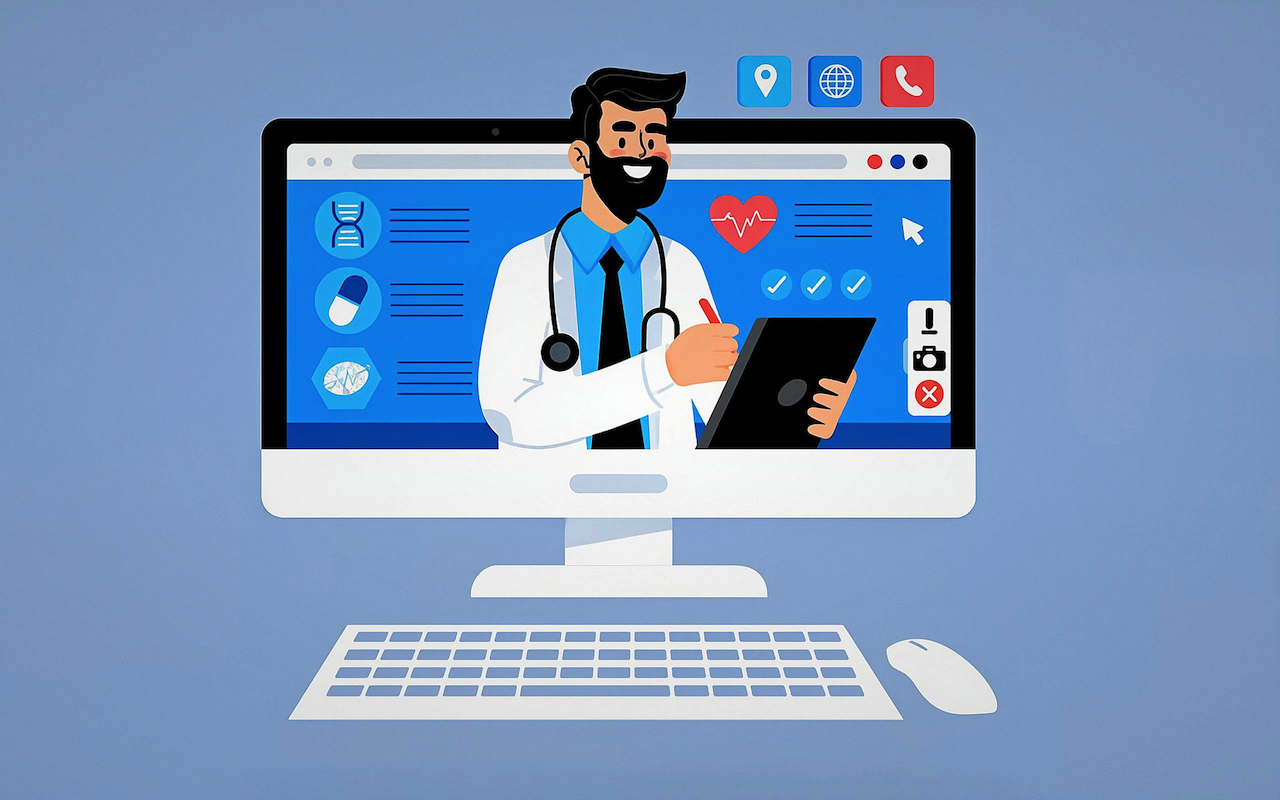
In today’s fast-paced medical field, continuous learning is essential. New treatments emerge rapidly, technologies evolve, and regulations change every year. Doctors, nurses, and healthcare staff must constantly update their knowledge and skills. Traditional classroom-based education simply can’t keep up with this pace. That’s where Learning Management Systems (LMS) come in, providing flexible, efficient, and easily accessible ongoing education.
A healthcare learning management system helps medical organizations manage and deliver online training effectively. It gives professionals access to high-quality educational resources, tracks their learning progress, and ensures compliance with medical regulations. These systems have completely transformed how healthcare workers learn, collaborate, and advance in their careers.
The Growing Need for Continuous Medical Education
Healthcare evolves constantly. New diseases emerge, technologies advance, and treatment standards shift at a rapid pace. To keep up, professionals must continuously update their skills and knowledge. Continuous Medical Education (CME) ensures that doctors, nurses, and healthcare staff can deliver safe, effective, and evidence-based care.
However, traditional methods of CME, such as in-person workshops and seminars, often present challenges. Time constraints, high costs, and geographical limitations make it difficult for busy healthcare professionals to participate. Learning management systems solve these problems by offering flexible, accessible, and self-paced training options. With an LMS, medical professionals can learn anytime, anywhere, without disrupting their demanding schedules.
What Makes LMS Platforms Essential
A learning management system serves as a centralized digital platform for managing education and training in the medical field. These systems offer structured learning paths, interactive content, and assessment tools that allow administrators to track learner progress in real time. They also help healthcare organizations monitor certifications, licenses, and compliance requirements effortlessly.
With an LMS, hospitals and medical schools can create and distribute tailored training modules, whether focused on patient safety, infection control, or new technology adoption. This level of customization ensures that every healthcare professional receives education suited to their specialization and responsibilities.
Moreover, the online accessibility of these platforms bridges the gap for professionals in remote or underserved areas, ensuring equal access to learning opportunities and helping close educational divides across regions.
Enhancing Learning Efficiency Through Digital Tools
One of the greatest strengths of LMS platforms lies in their integration of digital learning tools. They use multimedia elements like videos, animations, and interactive case studies to simplify complex medical topics. Virtual simulations let healthcare professionals safely practice procedures online before performing them in real life.
Built-in quizzes and progress tracking provide immediate feedback, allowing learners to assess their strengths and focus on areas that need improvement. The data-driven structure helps both learners and administrators measure engagement and learning outcomes accurately. Flexible, self-paced study options make it easier for busy medical professionals to fit training into their schedules, leading to stronger retention and higher participation rates.
Streamlining Compliance and Certification Management
In healthcare, compliance isn’t optional; it’s a core legal and ethical obligation. Professionals must maintain up-to-date certifications and meet evolving industry standards. Managing all this manually is time-consuming and prone to error.
A strong LMS automates compliance tracking and certification renewals. It keeps detailed records of completed courses, flags upcoming deadlines, and highlights mandatory regulatory training. This automation reduces administrative burden, minimizes risk, and ensures that staff are always compliant and well-prepared.
Administrators benefit as well. They can access real-time dashboards that show overall progress, identify training gaps, and make data-informed decisions about workforce development and patient safety improvements.
Improving Collaboration and Knowledge Sharing
Modern medicine thrives on collaboration and shared expertise. LMS platforms encourage this through interactive learning environments where professionals can connect, discuss case studies, and exchange best practices.
Features such as forums, peer reviews, and group projects foster teamwork and continuous improvement. Many systems even enable cross-organization collaboration, connecting hospitals, universities, and professional associations within a single digital space. This collective approach promotes lifelong learning and builds stronger communities across the healthcare field.
The Future of Learning Management Systems
As technology advances, LMS platforms are becoming more intelligent and connected. Artificial intelligence (AI) and analytics will soon personalize training programs, predicting learning patterns and improving outcomes. Integration with telehealth tools and electronic health records (EHRs) could allow professionals to learn in real time based on patient scenarios, making education more contextual and impactful.
Mobile learning is also transforming the space. Short, on-demand lessons, accessible on tablets and smartphones, make it easier for medical professionals to learn between shifts or during travel. This microlearning trend aligns with the fast-paced nature of healthcare, ensuring continuous skill development without disrupting workflow.
Conclusion
Integrating LMS platforms into medical education represents a major step forward in how healthcare professionals learn and grow. These systems combine flexibility, accessibility, and automation to make training continuous, consistent, and compliant.
By adopting digital learning solutions, healthcare organizations position themselves ahead of the curve, embracing innovation, streamlining operations, and strengthening trust with patients and staff alike. Continuous education through LMS platforms isn’t just the next phase of professional training; it’s a foundation for better patient care and higher clinical standards worldwide.
Share this post
Leave a comment
All comments are moderated. Spammy and bot submitted comments are deleted. Please submit the comments that are helpful to others, and we'll approve your comments. A comment that includes outbound link will only be approved if the content is relevant to the topic, and has some value to our readers.



Comments (0)
No comment